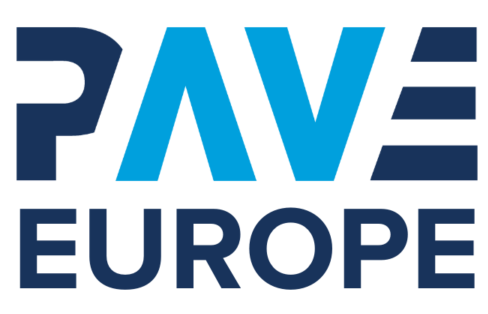
24th April 2025 – 7th May 2025
3 weeks online and 3 days on site at EUREF Campus, Berlin
€450 (Free for PAVE Europe Members)
English
TU Berlin Certificate of Professional Education (3 ECTS)
Blended learning, assessed and graded
Join industry leaders and experts for an immersive professional training on autonomous mobility. This course is designed to equip you with the latest knowledge and skills in the rapidly evolving field of autonomous vehicles, systems and services and its social, technological and digitalization aspects.
The course places a strong emphasis on presenting the main trends of autonomous vehicles and digitalization. Through close exchange with the lecturers and expert guest speakers, participants will gain specialist knowledge, whilst also working intensively on their own, practical project all along the course.
This certificate course begins with a three-week guided self-study phase, complemented by three virtual sessions (tentatively from 16:00 to 18:00 CET). It will then be followed by three days of immersive, in-person sessions in Berlin, offering an intensive learning experience.
Whether you’re a seasoned professional or new to the industry, this course offers invaluable insights and hands-on experiences to enhance your expertise and career prospects.
This course has now reached full capacity.
This course includes a mix of lectures, interactive workshops, hands-on exercises, case studies, and individual projects to provide participants with a holistic learning experience. Participants are encouraged to actively engage in discussions and apply learned concepts to real-world scenarios. The course content is subject to updates based on the latest developments in the field of digitalized transport.
After the successful completion of the course, participants will be able to:
The course will begin with a three-week guided self-study phase, that will be accompanied by three virtual sessions. They are tentatively scheduled for the dates below between 16:00 to 18:00 CET. Further details will be shared in the upcoming weeks.
Following the virtual sessions in April, participants will then have the opportunity to join in-person sessions at TU Berlin’s EUREF Campus. The detailed agenda for the in-person sessions can be found below. Lecturers for these sessions will be announced in the upcoming weeks.
Welcome and introduction to the course with PAVE Europe and TU Berlin
Short Presentation of the Lecturers
Participants will be given reading material in preparation for the course at TU Berlin’s EUREF campus the following week.
Presentation of Individual Projects
Welcome and introduction to the course
Introduction to Autonomous Mobility
Autonomous Mobility
Development and testing
Regulation and Safety Standards
Business and Market Aspects
Societal Impact
Case Studies and Real-world Applications
Technical Visit

Dr. Mihai Nica is currently the Global Head of ADAS/Automated Driving & Connectivity, at AVL List, GmbH, Graz, Austria (headquarters) – powertrain division. He has more than 18 years of work experience in the field of verification and validation for cyber-physical systems, 10 years’ experience in the area of EU R&D project management and more than 6 years’ experience in the area reliability engineering and functional safety development and management (ISO 26262). He worked in over 50 customer projects and 15 EU research projects with customer and partners from over 30 countries (China, India, Japan, US; UK, South Korea, Germany etc.).

Tobias Reich is Managing Partner at Rich Autonomy GmbH in Stuttgart, Germany. Rich Autonomy delivers strategic insights into the Auto Industry with a specific focus on Autonomous Mobility. Tobias is working for the European Commission on the regulatory framework for Autonomous Vehicles. He has served more than 25 years in leadership positions in Strategy, Product Management and Sales at Blue Chip companies such as Mercedes-Benz, Volkswagen and Peugeot Citroen and at leading consulting companies. Tobias has worked and lived in Germany, UK, France and Spain. He holds an INSEAD MBA and a master in Economics from Hohenheim University.

Vibeke Harlem is Director of Radical innovation in Ruter AS,
the public transport authority in Oslo region. Vibeke has previous experience
from telecom and has a long career in public transport. She has been a central
figure in Ruter the last 16 years and she is currently responsible for Ruters
strategy and pilots with autonomous vehicles. Vibeke has been an important
contributor to the work with “Ruters Mobility Study, to investigate how
autonomous cars may change transport in Oslo-Region”. Vibeke has business- and
customer centric mindset and is constantly looking for ways to serve customers
needs and improving existing services. She will position Ruter as a key player
in transforming public mobility.

Angela Pasch is Public Affairs Manager at ADMT, a part of the Volkswagen Group, focusing on shaping legislation for autonomous driving and sustainable mobility across Europe. Her professional journey includes roles in public affairs and business development within various brands of the Volkswagen Group, covering topics from alternative powertrains to digitization. She also worked as a public affairs specialist at the VDA (Verband der Automobilindustrie).

Arwed Schmidt is EasyMile’s Managing Director and Director of Strategic Initiatives – Passenger Transportation. He promotes the strengths and applications of autonomous vehicle technology while engaging with partners, governments and academia. Arwed has a decade of experience in strategy and project management. He completed his academic education with a doctoral thesis exploring, “Fleet Management of Electric and Autonomous Service Agents in Urban Local Passenger Traffic”, and won an award related to the future of mobility.

Celine Chen is a Consultant for Autonomous Mobility and Sustainability at P3, working on consumer trust, user acceptance, and social sustainability in the context of future vehicle technologies. Her expertise spans project and requirements management for next-generation vehicles at a German OEM, as well as strategic sustainability communications within the mobility sector.

Franz Andert has worked at the German Aerospace Center (DLR) since 2006. He received his PhD in Aerospace Engineering in 2011 at Technische Universität Braunschweig, and was a visiting fellow at Queensland University of Technology. During post-doctoral research, he became a project leader in several projects at DLR and industrial consortia. He worked at the Institute of Transportation Systems in Berlin and Braunschweig. He leads the research group “Cognition Technologies” which addresses topics as computer vision, machine learning, and distributed sensing for automated and cooperative road vehicles. Key research is about safe autonomous driving with regard to passenger and societal needs.

Guido Di Pasquale is the Managing Director of PAVE Europe, where he leads the association in the mission of educating citizens and public authorities about the benefits of fully driverless technologies. Prior to PAVE Europe, Guido was Co-Director of Knowledge and Innovation at UITP. He has more than 20 years of experience in the transport and automation field, specialising in Intelligent Transport Systems, Automated Mobility, integrated mobility, research and innovation, strategy and policy. His main fields of expertise are: Automated Road Transport, Mobility as a Service, IT and Telematics for Public Transport, Traveller information, integrated fare and ticketing systems, Management.

Hans Steege received his doctor of law from the Leibniz University of Hannover and his doctor of economics and social sciences from the University of Stuttgart. He worked in the legal department of Continental AG, in public affairs at Volkswagen Commercial Vehicles and has been working in data protection at Cariad SE, a Volkswagen Group Company, since 2021. He is a lecturer at the University of Stuttgart and teaches there in the fields of autonomous driving and artificial intelligence. He has been a member of the ‘Round Table Autonomous Driving’ of the Federal Ministry of Digital and Transport (BMDV) since 2023. He advised on the “KoTAM – Coordination of the autonomous mobility test fields in Germany” project.

Jeroen Beukers is the Head of Innovation at Transports publics genevois (TPG). He is committed to assist in creating a climate of change through radical innovation. Making public transport an accessible, cool and trustworthy experience. Understanding how commuters go through their travel process and imagining the future of sustainable freedom of movement. Testing zero-emission, shared, on-demand, door-2-door, self-driving transportation solutions for people and goods transit. Dedicating time and effort to really analyze, compare, and improve every aspect of mobility and their characteristics.

Jonas Wigger is Public Affairs Manager at MOIA, a part of the Volkswagen Group, with a focus on shaping legislation on autonomous driving and sustainable mobility across Europe. With expertise in strategic communication and policy, he has a track record in driving initiatives in mobility, sustainability, and digital transformation, adept at navigating complex political landscapes. His professional journey includes strategic roles in public affairs, consultancy in sustainability as well as government institutions.

Massimo Moraglio’s work focuses on technology and its wide effects on economic, social and cultural fields, exploring its long-term trends. He gives attention at the crucial topics of sustainability, justice and environmental studies, focusing on transitions, futures and cultural shifts. He is Academic Coordinator of the MBA Sustainable Mobility Management at the Technische Universität Berlin as well as scientist in research projects, and has acquired many research grants from national and international funding schemes. This has led to meaningful international dialogue on technology and its transition toward a smart and sustainable future.

Michael Herdrich is a Consultant for Autonomous Mobility at P3 and leads PAVE Europe’s Working Group on Understanding, Trust and Acceptance. He co-authored the PAVE White Paper; “Safer, Cleaner, More Equitable: Seizing the Opportunities of Highly Automated Vehicles”. He works across AD and ADAS technology evaluation, regulatory implementation, and market intelligence. His expertise covers due diligence of self-driving systems and the global ADAS landscape across the EU, USA, and Asia.

Dr. Mihai Nica is currently the Global Head of ADAS/Automated Driving & Connectivity, at AVL List, GmbH, Graz, Austria (headquarters) – powertrain division. He has more than 18 years of work experience in the field of verification and validation for cyber-physical systems, 10 years’ experience in the area of EU R&D project management and more than 6 years’ experience in the area reliability engineering and functional safety development and management (ISO 26262). He worked in over 50 customer projects and 15 EU research projects with customer and partners from over 30 countries (China, India, Japan, US; UK, South Korea, Germany etc.).

Tobias Reich is Managing Partner at Rich Autonomy GmbH in Stuttgart, Germany. Rich Autonomy delivers strategic insights into the Auto Industry with a specific focus on Autonomous Mobility. Tobias is working for the European Commission on the regulatory framework for Autonomous Vehicles. He has served more than 25 years in leadership positions in Strategy, Product Management and Sales at Blue Chip companies such as Mercedes-Benz, Volkswagen and Peugeot Citroen and at leading consulting companies. Tobias has worked and lived in Germany, UK, France and Spain. He holds an INSEAD MBA and a master in Economics from Hohenheim University.

Vibeke Harlem is Director of Radical innovation in Ruter AS,
the public transport authority in Oslo region. Vibeke has previous experience
from telecom and has a long career in public transport. She has been a central
figure in Ruter the last 16 years and she is currently responsible for Ruters
strategy and pilots with autonomous vehicles. Vibeke has been an important
contributor to the work with “Ruters Mobility Study, to investigate how
autonomous cars may change transport in Oslo-Region”. Vibeke has business- and
customer centric mindset and is constantly looking for ways to serve customers
needs and improving existing services. She will position Ruter as a key player
in transforming public mobility.

Angela Pasch is Public Affairs Manager at ADMT, a part of the Volkswagen Group, focusing on shaping legislation for autonomous driving and sustainable mobility across Europe. Her professional journey includes roles in public affairs and business development within various brands of the Volkswagen Group, covering topics from alternative powertrains to digitization. She also worked as a public affairs specialist at the VDA (Verband der Automobilindustrie).

Arwed Schmidt is EasyMile’s Managing Director and Director of Strategic Initiatives – Passenger Transportation. He promotes the strengths and applications of autonomous vehicle technology while engaging with partners, governments and academia. Arwed has a decade of experience in strategy and project management. He completed his academic education with a doctoral thesis exploring, “Fleet Management of Electric and Autonomous Service Agents in Urban Local Passenger Traffic”, and won an award related to the future of mobility.

Celine Chen is a Consultant for Autonomous Mobility and Sustainability at P3, working on consumer trust, user acceptance, and social sustainability in the context of future vehicle technologies. Her expertise spans project and requirements management for next-generation vehicles at a German OEM, as well as strategic sustainability communications within the mobility sector.

The course welcomes both seasoned professionals, and those who are new to the industry.
PAVE Europe members can complete the registration form here. Non-members can apply via TU Berlin’s website here. If you are unable to do so, then please send us an email and we’ll assist you. Please note: the course has a cap of 15 participants.
Participants will receive a TU Berlin Certificate of Professional Education (3 ECTS).
This course is supported by EIT Urban Mobility, an initiative of the European Institute of Innovation Technology (EIT), a body of the European Union. The aim is to positively change the way people move around in cities in order to make them more liveable. You can find more information at eiturbanmobility.eu
This support enables participants to access a special, reduced fee for this TU Berlin Academy and PAVE Europe course.
Joint data processing with PAVE Europe and EIT KIC Urban Mobility S.L
The TU Berlin Academy, TUBS GmbH collaborates with PAVE Europe and EIT KIC Urban Mobility S.L in organizing the course “Autonomous Mobility and its Digitalization”. When conducting the learning activities with PAVE Europe and EIT KIC Urban Mobility S.L, the TU Berlin Academy (TUBS GmbH) acts as a Joint Data Controller together with PAVE Europe and EIT KIC Urban Mobility S.L.
In order to fulfill this purpose we process personal data as described in our privacy policy. Any questions related to ensuring privacy rights in the context of joint continuing education may be addressed to the TU Berlin Academy (see contact details in the privacy policy).



© 2025 PAVE Europe. All Rights Reserved.
© 2025 Partners for Automated Vehicle Education. All Rights Reserved.